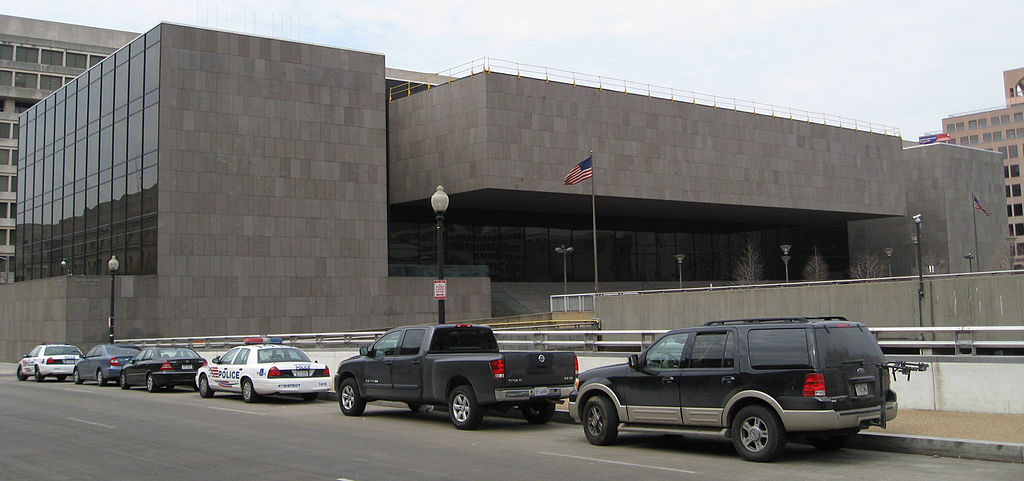Association for Honest Attorneys loses its tax-exempt status after founder can't find a lawyer
U.S. Tax Court in Washington, D.C. Photo by Biruitorul, via Wikimedia Commons.
The Association for Honest Attorneys hasn’t had any lawyer members since its founding in 2003. No lawyers are on its “nice list.” And no lawyer could be found to represent the group in a recent tax case, according to the group’s founder.
The U.S. Tax Court ruled against the group early this month when it denied tax-exempt status for the organization, Forbes reports.
The court said it appeared the group’s founder, Joan Farr, had been spending association money on purchases at grocery stores, department stores and home-improvement stores. Farr had argued the spending was repayment of a loan she had made to the organization, but the court said Farr’s evidence supporting the claim was insufficient.
Farr says she was unable to find a lawyer to represent the association in the case, and she didn’t receive notice of the IRS examination of the group’s activities. Nor did she receive a hearing before her tax-exempt status was revoked, she said. The Tax Court decision “is a complete denial of due process of law,” she told Forbes.
When the Association for Honest Attorneys was organized as a nonprofit, it was located in Kansas at Farr’s residence. She served as CEO and group president. The purpose of the association was to discourage litigation, improve the legal system, keep lawyers honest and seek justice for all, according to the Tax Court opinion.
Farr also indicated the group would sell a book she wrote called Ten Secrets You Must Know Before Hiring a Lawyer.
The Internal Revenue Service had targeted what appeared to be nearly $40,000 withdrawn from the group’s accounts over a three-year period. The money was apparently spent for purchases from stores such as Dillard’s, Walgreens, Walmart, Kohl’s, Lowe’s and MY Construction. Farr also made a $7,750 payment for her son’s school tuition and spent $2,200 payment for the exhumation and DNA testing of the remains of her father, who was killed in the Vietnam War, the court said.
The Tax Court noted that the Kansas Attorney General’s office had sued Farr (whose last name was then Heffington) for alleged unauthorized practice of law for work done on behalf of people who contacted the association. A county judge who heard the case in December 2010 cited evidence showing the group had received at least $70,000 in contributions.
The Kansas judge entered a default judgment barring Farr from unauthorized practice in February 2011. Farr was “evidently undeterred” by the injunction and accepted another $20,000 the same year to aid a divorce litigant who wanted to file a petition with the U.S. Supreme Court, the Tax Court said.
Farr tells Forbes she will appeal the Tax Court decision. Forbes sees some irony in Farr taking a legal approach to tax litigation. “Ironically,” Forbes says, “Farr’s approach is similar to what happens with some attorneys when they end up in Tax Court. Rather than going through the tedious process of documenting transactions as an accountant would, they make arguments about process.”
Corrects spelling of Farr in ninth paragraph at 8:45 a.m.




